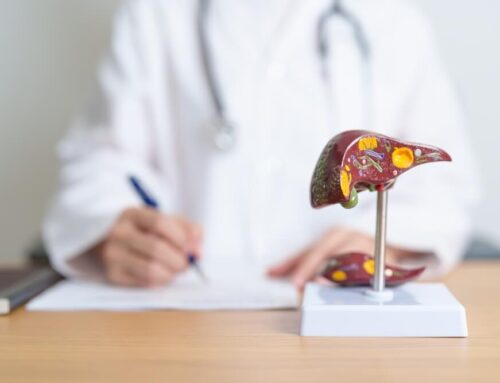What is Prenatal Testing?
Prenatal testing helps you and your physician learn more about you and your baby’s health during pregnancy. Tests like checking blood pressure or urinalysis are performed many times throughout your pregnancy. Others are done less often, such as blood tests called a prenatal screening panel, or an ultrasound. Prenatal testing can also help rule out health problems, such as genetic conditions or congenital disabilities. It is important to go over your options with your physician and determine if a prenatal screening program is right for you.
Types of Prenatal Testing
During pregnancy, it is normal to worry about your baby’s health, and it is important to understand that you have options in obtaining details about your baby’s health as well. The two main types of prenatal testing are screening tests and diagnostic tests. Screening tests help to identify whether your baby is more susceptible to birth defects, while diagnostic tests confirm a diagnosis.
The two main types of prenatal testing are screening tests and diagnostic tests. Prenatal screening tests help you uncover any birth defects ahead of time, many of which are also genetic disorders. Prenatal screening tests include blood tests, or a prenatal lab panel, ultrasound, and DNA screening in the first or second trimester. Because they are not definitive, diagnostic testing may be recommended to confirm or rule out the initial diagnosis. These more invasive prenatal tests include chorionic villus sampling and amniocentesis, which both come with some risks.
Why is Prenatal Testing Important?

The ultimate goal of prenatal testing is to make sure that you and your baby are staying healthy. If you or your family has a history of certain health conditions, it is recommended to consult a genetic counselor. This professional is trained to help you understand things like congenital disabilities and other medical conditions and how they affect you and your baby’s health.
Prenatal tests help to identify any health problems your baby may be experiencing, including:
- Birth defects or health conditions present at birth that change the shape or function of one or more body parts. Congenital disabilities can affect how the body works or develops and can cause problems in overall health.
- They test for genetic and chromosomal conditions, which are caused by changes in genes and chromosomes. A gene is part of a cell in your body that dictates how your body grows and works, while a chromosome is a structure in a cell that carries genes. Prenatal tests can identify these conditions, including cystic fibrosis or CF, heart defects, sickle cell disease, and Down syndrome. These conditions may develop on their own during pregnancy due to various factors, or they may be passed down.
Types of Screening Tests
To ensure the health of you and your baby, you may opt into a prenatal screening program which includes prenatal testing by week in different trimesters of your pregnancy, and prenatal blood panel. These prenatal screening tests occur in the first, second, and third trimesters during pregnancy, including testing for Down syndrome, abnormalities of the brain or spinal cord, and information about a baby’s sex and blood type.
First Trimester
During your first trimester, your healthcare provider will perform the following tests many times at the start and throughout your pregnancy. These include blood pressure checks to rule out things like preeclampsia, urine tests to check for infections in the bladder or kidneys, and rule out further signs of preeclampsia like protein in your urine, and finally, prenatal blood panel to check for sexually transmitted infections or diseases, anemia, and Rh factor. Your physician will also weigh you regularly throughout your pregnancy to monitor your weight gain and health.
Second Trimester
During your second trimester of pregnancy, or months four, five, and six, your healthcare provider may offer you the following tests to further answer questions about your health and the health of your baby. As the pregnancy progresses, more information will be available to your physician to learn more about how your child is developing, how your pregnancy is developing, and what risk factors are at play. These tests include:
- Maternal blood screening screens your blood to check for risks of some congenital disabilities in your baby, such as Down syndrome. Maternal blood screening, also called a quad screen, measures four different substances in your blood, including alpha-fetoprotein (AFP), estriol, human chorionic gonadotropin (hCG), and inhibin A. A quad screen test is typically administered between 15 and 22 weeks of your pregnancy.
- Ultrasound will be ordered between 18 and 22 weeks of pregnancy. Ultrasounds identify your baby’s growth and development and additionally checks for any birth defects.
- Amniocentesis is when a sample of amniotic fluid is taken from around the baby to see if your baby has a congenital disability or genetic condition. This test is performed between 15 and 20 weeks of pregnancy. If you are over 35, if there is a history of genetic conditions in your family, or if your first-trimester screening identifies your baby as being at an increased risk for birth defects, your healthcare provider may order this test.
- Glucose screening is a test performed between 24 and 28 weeks of pregnancy that checks to see whether you may have gestational diabetes, which some women develop during pregnancy.
Third Trimester
In your third and last trimester of pregnancy or months seven, eight, and nine of your pregnancy, your healthcare provider may order additional tests, such as a group B strep test and kick counts. Group B strep test checks fluid in your cervix for GBS, an infection that can be passed to your baby during birth. Kick counts are a test to track how often your baby moves, and movement in your belly should begin by about 20 weeks into pregnancy.
If you have reached five months of pregnancy, or about 20 weeks, and have not yet felt your baby move, or if you notice a change in how often your baby moves, consult your physician promptly. Two ways to do kick counts include monitoring how long it takes your baby to move ten times and how many movements you feel in one hour, which should be performed three times weekly. If these numbers change, tell your doctor.
What is Diagnostic Testing?
While prenatal screening helps to determine the likelihood of your baby having a certain health condition, diagnostic testing confirms whether or not your baby does, in fact, have a health condition. Diagnostic testing confirms or rules out prenatal testing results. Some of these tests come with risks, such as miscarriage. Diagnostic testing, however, has its benefits, such as being able to learn more about your baby’s condition and how to care for them and making plans to give birth in a hospital. Hence, your baby receives special medical care.

Questions to Consider
Prenatal screening can help diagnose fetal abnormalities. They are optional, and it is important to make informed decisions about prenatal testing, especially if the conditions you are screening for are not treatable. It is important to consider the following before moving forward with prenatal and diagnostic testing:
- How will the results affect you? If results are normal, this may ease any anxieties you have about your pregnancy. Still, on the other hand, an undesired result can lead to difficult decisions, such as how to prepare for your baby’s care or whether to continue your pregnancy.
- How will prenatal testing results affect your prenatal care? Because prenatal tests can detect problems that can be treated during or immediately after pregnancy, you and your healthcare provider may be better prepared and informed about what you and your baby need in your care.
- Results are not definitive! The rate of inaccurate results in prenatal testing, known as false-negative or false-positive results, varies from test to test.
- What are the risk factors of prenatal testing, and is this worth knowing the results? Risks of specific prenatal tests include anxiety, pain, or a possible miscarriage.
A Note from Us
At Trogolo Obstetrics and Gynecology, we believe the decision to pursue prenatal testing is up to you. If you have any questions or are concerned about prenatal testing, discuss the benefits and risks with your healthcare provider, or consult a genetic counselor to receive help in choosing tests and understanding results. Take time to review your options to make the best decision for you and your baby. To learn more about prenatal testing, give us a call or visit our website today. We at Trogolo would love to be part of your prenatal journey and care!





